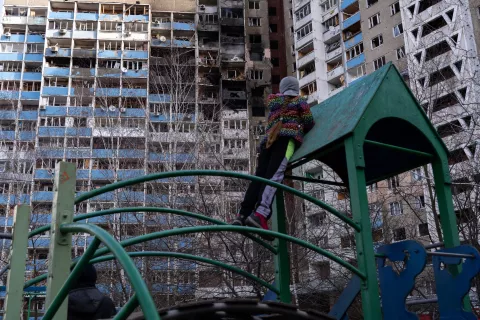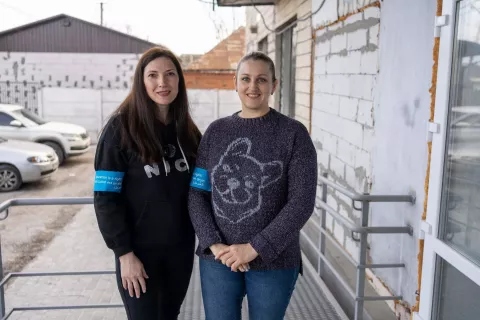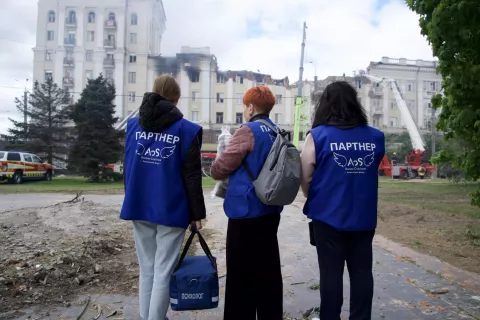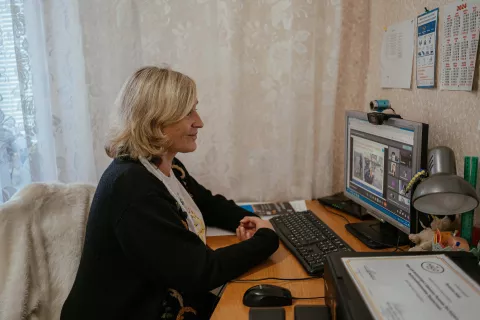UNICEF receives additional support from Government of Japan for humanitarian response to impact of Kakhovka dam destruction
This generous contribution will support UNICEF’s ongoing and urgent water, hygiene, and sanitation support and child protection efforts in Kherson, Krivyi Rih, Marhanets, Nikopol, Pokrov, Apostolove, Zelenodolsk and other affected areas
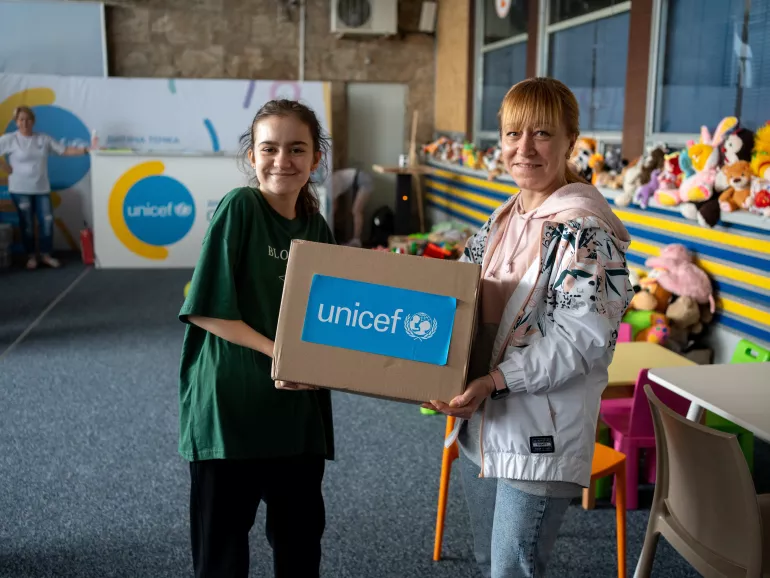
- Available in:
- Українська
- English
Kyiv, 19 June 2023: The Government of Japan has provided UNICEF with an additional US$1.3m to further increase humanitarian response activities assisting people affected by the destruction of the Kakhovka dam. The ongoing war in Ukraine has placed 17.6 million people in need of urgent humanitarian assistance and protection in Ukraine, including 4.1 million children. The catastrophic flooding caused by the dam attack on 6 June 2023, and subsequent drainage of the Kakhovka reservoir, has significantly increased humanitarian needs. Flooding has directly affected tens of thousands of residents, and over 700,000 people are at risk of losing access to safe water.
“I would like to extend my deepest sympathy to the people of Ukraine, who have been affected by the floods following the recent collapse of the Kakhovka Dam, as well as to express my strong concern about its enormous impact,” - said the Ambassador of Japan to Ukraine, Kuninori Matsuda. - “I believe that ensuring access to water, hygiene and healthcare services as part of emergency humanitarian assistance is a matter of urgency and high importance. Japan will continue to provide assistance to vulnerable people, including children, in cooperation with UNICEF and other international organizations”.
The dam breach has meant that many communities in the Kherson, Dnipro and Mykolaiv regions have been forced to evacuate. Moreover, flooding has meant that people remaining behind face significant difficulties accessing basic services including safe water, protection, and social support systems, increasing the psychological needs among children and families. The draining of Kakhovka reservoir, which acted as a water source for hundreds of thousands of people, has meant water insecurity in the affected area is massive. Furthermore, flooding has also increased the mine risk threat to civilians, putting children and youth in greater danger.
UNICEF and other humanitarian organizations have responded to the humanitarian needs created by the dam breach since the first day of the attack. Bottled water, hygiene kits, and water purification tablets have already reached many affected communities. Altogether UNICEF has provided over 26,000 of 5/6l bottles of water, along with other lifesaving supplies are being delivered to the Kherson, Dnipro and Mykolaiv regions, including the cities of Marhanets and Nikopol. Additionally, UNICEF has distributed over 270,000 purification tablets, over two hundred water tanks of different sizes (300L-1000L), nearly 14,000 hygiene kits, and almost 4,000 children-on-the-move kits. Mobile teams of doctors and psychologists have provided over 400 children with medical examinations and mental health support in Kherson region, and nearly 900 people have utilized the pop-up Spilno spot in the Mykolaiv train station. Over 1,000 families with children from affected areas have received humanitarian cash support. Support to water utility companies in affected areas, such as Kherson, Marhanets, Nikopol and Kryvyi Rih to continue the operation of critical infrastructure and the future rehabilitation of water supply systems is ongoing.
“We are grateful to see our long and successful partnership with the Government of Japan boost our efforts to help affected communities and families in Ukraine in such a critical time,” noted UNICEF Ukraine Representative Murat Sahin. “This generous contribution will help us increase the provision of lifesaving supplies, including water, hygiene kits, as well as immediate protection, psychological support, and explosive ordnance risk education (EORE) to hundreds of thousands of Ukrainian families and children in the affected areas.”
Media contacts
About UNICEF
UNICEF works in some of the world’s toughest places to reach the world’s most disadvantaged children. Across 190 countries and territories, we work for every child, everywhere, to build a better world for everyone. For more information about UNICEF and its work for children, visit www.unicef.org

